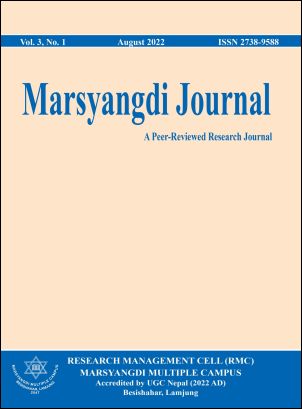Practices of Inclusive Education in Nepal
DOI:
https://doi.org/10.3126/mj.v3i1.47958Keywords:
inclusion, access, supportive teaching, alternative teaching, parallel teaching, visionary leadershipAbstract
Inclusive education is an approach, process, perspective and universal principle of mainstreaming the people to address the diverse needs and interests of students through a responsive, respectful and supportive learning environment. Students from diverse socioeconomic backgrounds and with different learning abilities can learn together by participating in their educational settings. This study aims to identify the indicators of inclusive education that can be helpful for teachers to make their teaching effective. After being familiar with the national and international practices of inclusive education, teachers can broaden their knowledge and will incorporate inclusive attitudes into their content delivery practices. Despite the high public interest in technical and vocational education (TVE), few of them have access and the opportunity to enroll in the TVE stream. Considering this problem, this study was conducted in a natural setting through field visits, interviews with parents, students, SMC chairpersons and political leaders in the sampled district. The study found the various gaps in inclusive practices such as promoting diversity, social justice, cooperative learning and collaboration in general and TVE schools in Nepal. Using Herzberg motivational-Hygiene theory as a theoretical lens to investigate the practice of inclusiveness in TVE schools, I found some demotivating factors such as fragile TVE policy and job insecurity of teachers to demotivate teachers and students toward technical and vocational educations in western Nepal.




